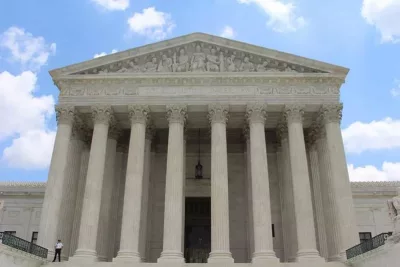
- Originally Published on January 10, 2024
How Much Does a Defamation Lawsuit Cost? Cost to Sue For Defamation
If online defamation is significantly harming your reputation, you may be considering suing to remove damaging content and obtain damages. However, filing suit is not always straightforward and there is no one-size-fits-all answer to determine the total cost of a defamation lawsuit.
At Minc Law, to pursue a defamation lawsuit, we generally bill on an hourly basis for time spent working on your case and require a $8,500 deposit (or retainer fee) to get started. However, a “retainer” is not what a defamation case costs. The average cost of a defamation lawsuit at Minc Law typically ranges from $15,000 to $25,000. Some defamation lawsuits are resolved for less, while others may be more costly, depending on the unique facts of each situation.
The core factors that impact the cost of a defamation suit include:
- Whether anonymous defendants must be identified,
- If you need a court order to remove content,
- The amount of defamatory content in question,
- The difficulty of proving defamation damages,
- Whether emergency assistance is required,
- If it is necessary to hire local counsel, and
- Whether the case is contested.
At Minc Law, our team of attorneys has litigated both sides of defamation suits in 26 U.S. states and 5 countries. We thoroughly understand the factors at play in determining the costs of a defamation lawsuit, and we have proven success in navigating defamation cases both inside and outside of the courtroom. We have also written over 22 state-specific guides to defamation law, and we pride ourselves in providing transparent, actionable information for defamation victims across the U.S.
In this article, we describe defamation lawsuits and their typical considerations, risks, and outcomes. We then explore various factors unique to defamation—and those that are common in all lawsuits—that can affect the cost of a defamation claim.
What a Typical Defamation Lawsuit Looks Like at Minc Law
Before we explain the average costs of a defamation lawsuit, it is important to first understand what a typical defamation case looks like at our firm. Our team at Minc Law focuses primarily on online defamation. The types of cases we see most often involve perpetrators posting harmful and libelous statements on the internet, such as:
- False and misleading consumer reviews,
- Social media defamation,
- Untrue accusations on shaming websites, and
- Defamatory statements on blogs and online discussion forums.
In a standard case at Minc Law, a client is being defamed on multiple websites, including social media. In most situations, they do not know the identity of the defamer, and other attempts they have made to have the content removed or stop the defamation have failed.
In these types of situations, our team can help file a John Doe lawsuit to unmask the perpetrator and obtain subpoenas and/or court orders to have the defamatory content removed.
How We Break Down Costs For Defamation Lawsuits
Simply put, the cost of any defamation case is determined by many variables, so there is no one-size-fits-all answer. At Minc Law, the total cost of filing a defamation lawsuit is typically influenced by three primary factors:
- Factors unique to defamation cases,
- Structure of your legal agreement,
- Factors that commonly influence litigation costs.
Internet defamation cases, in particular, require specialized expertise and legal advice as they include countless unique factors that can influence cost. Further, the legal fee structure that you agree with your defamation attorney will also drive the costs. Finally, there are specific litigation factors that apply to any legal matter which must be considered.
We examine these in greater detail below.
Factors Unique to Defamation Cases & Their Impact on Costs
A defamation lawsuit is a legal action taken by an individual or business against another for making false statements that harm the plaintiff’s reputation. Defamation can take two forms: slander, which is spoken, and libel, which is written or published.
Because the cost of any lawsuit depends on several factors, there is no simple answer to how much a defamation lawsuit costs. Online defamation claims, in particular, call for specific experience and expert legal advice to determine a realistic cost range.
Most commonly, the following unique factors influence the cost of a defamation lawsuit:
- Whether anonymous defendants must be identified,
- If you need a court order to remove content,
- The amount of defamatory content in question,
- The difficulty of proving defamation damages,
- Whether emergency assistance is required,
- If it is necessary to hire local counsel, and
- Whether the case is contested.
We explore each factor in greater detail below.
Identifying Anonymous Defendants
As you might expect, a lawsuit where you know the defendant’s identity is much simpler than where you do not. If the defamer is anonymous (such as an online troll or creator of a fraudulent social media account), you must uncover their identity before beginning a lawsuit.
These kinds of cases are called John Doe lawsuits. They begin with a discovery process where you can subpoena internet service providers (ISPs) and online platforms to identify the poster. The investigative efforts may include serving multiple online entities and hosts with subpoenas—and occasionally enlisting the help of tech-savvy private investigators.
Due to the increased effort and time involved in these investigations, your attorney’s fees will almost certainly increase.
Obtaining a Court Order to Remove Content
Some online platforms require a court order before they agree to remove fake and defamatory statements. Depending on the case, some court orders can be easy to obtain—while others are not.
If your situation requires a court order to take down defamatory content from the internet, it can increase the work, cost, and time involved in your legal matter.
Amount of Defamatory Content
Another critical factor in the cost and complexity of your case is the amount of defamatory content you wish to address. The more false accusations and defamatory statements about you online, the more effort (and legal fees) you can expect.
As of December 2023, the indexed web contains 3.15 billion web pages—but some estimate the real number is closer to 50 billion. That is a great deal of content to sift through. Since defamatory content has a tendency to duplicate and spread far from its source, it can take more time and work for your attorney to remove every instance of defamation.
Proving Defamation Damages
If your primary objective is monetary relief, the cost of your defamation suit will increase. Such monetary damages might include:
- Mental and emotional distress,
- Medical expenses,
- Compensation for lost business or missed work and
- Punitive damages.
Compensation for reputational harm or mental distress falls under general damages (or nominal damages). What does not qualify as general damages is referred to as compensatory or special damages and usually must be proven with evidence that quantifies the specific harm.
Sometimes, proving special damages is not difficult. For example, an employee who lost their job because of a coworker’s slander can show proof of their termination. Or perhaps the plaintiff can provide medical bills documenting the physical and emotional distress the defamation caused. However, proving harm in a defamation suit with evidence or witness testimony is not always that easy.
Since slander is spoken defamation, proving damages in slander suits is much more difficult than libel claims. It is much harder to find tangible or written evidence of a slanderous statement.
Cases that seek monetary rewards are usually highly contentious. They often last longer than other kinds of defamation cases—which ultimately adds to the cost of the lawsuit.
Also, defamation claims involving businesses or their owners are much harder to prove. They usually require the assistance of expert witnesses like accountants to quantify losses accurately.
Recovering Attorneys’ Fees
Additionally, if a plaintiff wishes to recover attorneys’ fees as compensation for their claim, they need to be awarded punitive damages. They must prove the defendant made the statement with actual malice (knowingly making a false statement)—or that they did so with reckless disregard for the statement’s truth.
In defamation law, the burden of proof to show actual malice or reckless disregard is much higher than other kinds of damages.
Emergency Assistance Required
More urgent cases with severe, immediate harm can increase costs as well. For example, if your newly opened restaurant is being flooded with dozens of fake Google reviews, you need this harmful content removed as soon as possible. Since more than 20% of new businesses fail in their first year, quickly removing fake reviews is crucial for surviving in an already turbulent market.
When the perpetrator is still actively posting content, preserving evidence takes more time and attention. Your case also expands in scope since your attorney must work even more swiftly to secure the removal of ongoing defamation. They may need to file emergency motions with the court since traditional legal processes can move too slowly for your needs. Emergency motions can stop the publication of defamatory content (even temporarily) while your case is pending.
Given the faster timeline and increased effort required on your attorney’s part, emergency defamation cases can contribute to increased costs.
Attorneys’ Fees for Local Counsel
Depending on the jurisdictions involved in your case, outside counsel may be necessary to pursue litigation effectively. For instance, you may hire an attorney licensed to practice in your state, but if the defendant lives in another jurisdiction, you will also need the help of a lawyer located in that state.
Because attorneys charge different rates based on their location, hiring local counsel can affect your defamation case’s overall costs. Attorneys in large cities like Washington, D.C., New York, and Los Angeles command exceptionally high prices.
Contested Cases
Finally, possibly the largest variable affecting your defamation case’s cost is whether it is contested. A contested case is one in which the defendant challenges your legal claims and assertions.
Defamation cases can become contested fairly easily thanks to the dozens of defenses to defamation available under the First Amendment. The risk of contestation is especially high if your case involves matters of public concern, you are a public figure, or the defendant is a journalist.
Legal representation is much more affordable when cases are uncontested or settled quickly. When the other party refuses to settle, is confrontational, and fights every step of the way, your attorney must put in more preparation and work. This added effort and time translates to increased costs.
Difference in Defamation Lawyer Fee Structures & Impact on Case Costs
Attorney’s fees in defamation cases vary based on the fee structure you and your attorney agree upon. The most common fee structures used by attorneys include:
- Flat fees,
- Retainer fees and
- Contingency fees.
Flat Fees
A flat fee is a straightforward amount the attorney charges you to complete your case. This type of fee is only practical for simple cases with very few variables, such as a guaranteed content removal service.
Since there are several complex factors that can influence how much time and effort a defamation case will require, Minc Law does not use flat fees for most defamation matters. Charging one flat rate for all defamation cases would either make the rate unfairly high for those with simpler matters or underpay attorneys for additional hours worked on complex cases.
Retainer Fees
A retainer fee is an upfront deposit made before work on your matter begins. As the attorney completes hours of work on your case, they bill against that retainer. Clients are provided a monthly billing statement to keep track of costs and see where their money is going.
With a retainer fee agreement, you will not need to pay any fees until the retainer is used. After that, you will receive monthly invoices for the attorney’s hourly work until the case is completed.
Another type of retainer fee is the evergreen retainer, which requires clients to maintain a minimum balance (such as $1,000) in the retainer account.
Minc Law typically uses retainer fee agreements when handling online defamation cases. To learn more about the retainer fee structure and its key benefits, we recommend watching our explainer video below.
Video: Attorney Retainer Fee Agreement: What Is It and How Does It Work?

Why Defamation Cases Do Not Typically Use Contingency Fees
You may have seen commercials in which lawyers advertise, “No fee unless you win!” This arrangement is known as a contingency fee structure because payment is contingent upon a specific result.
Contingency fees are popular in some legal fields (such as personal injury), but not for defamation cases. There are many defamation defenses that make it possible for defendants to skirt liability—making “guaranteed wins” less likely.
And unlike a personal injury claim, where you can provide medical bills as evidence of your damages, harm caused by defamation is often difficult to see or quantify.
Most defamation plaintiffs usually seek non-financial remedies—and even when they do, large payouts are rare for defamation claims. Many defamers are anonymous, which means it is impossible to know whether the defendant can pay a large amount of damages. And since insurance companies do not cover acts of malice like defamation, there is little chance of recovering damages from the defendant’s insurance policy.
For further reading, please see our comprehensive resource explaining ‘Why Defamation Cases Are Not Taken on Contingency’.
Factors That Influence Costs in All Defamation Cases
Your defamation lawsuit’s cost can also be influenced by expenses that apply to almost every legal matter, such as:
- Customer service availability,
- The time it takes to resolve the matter,
- The complexity of discovery and evidence, and
- Whether the case ends in mediation or goes to trial.
Customer Service
At Minc Law, we prioritize customer service—and we aim to be as responsive as possible. We do not avoid clients who require daily personal attention or frequent updates about their cases. However, that additional attention and staff availability can raise costs for our firm.
The amount of attention and communication you require is completely up to you—so you have control over this expense. If costs are less of a concern for you, feel free to call or email us as much as you wish. But if you would prefer to minimize case costs, you can choose to communicate with us less frequently.
Time to Resolve the Matter
Another major influence on your case’s cost is the time it takes to resolve the matter. Some simple defamation content removals take a few days, while contested litigation matters can go on for years. Factors like jurisdiction, whether the defendant is anonymous, and the length of settlement negotiations can impact a case’s timeline.
In our experience handling hundreds of cases, the average defamation lawsuit takes between six and twelve months to resolve.
To learn more about the factors influencing the length of a defamation lawsuit, see our in-depth guide: “How Long Does it Take to Sue for Defamation?”.
Discovery & Evidence
Similarly, the complexity surrounding finding and documenting evidence influences a case’s costs. The more documents to review and witnesses to depose, the higher the attorney’s costs. The discovery process (the stage of a lawsuit where both parties exchange information) might be straightforward or highly complex and lengthy. Some matters require hiring expert witnesses, which can be invaluable to your case—but incur even more expenses.
Court-related costs vary by jurisdiction and can include:
- Filing fees,
- Transcript fees,
- Deposition fees,
- Court reports, and
- Attorney travel expenses.
Some high-conflict cases require emergency motions, while counterclaims and Anti-SLAPP motions made by defendants can increase a case’s costs and timeline.
Mediation vs. Trial
Mediation is much less costly than a trial in most cases, but professional mediators do charge a fee. If your case goes to trial, added costs can include:
- Trial and jury preparation,
- Additional attorney support, and
- Visual aids and demonstrations for the jury.
How Many Defamation Cases Go to Trial?
Like other civil lawsuits, most defamation parties settle before going to trial. Plaintiffs and defendants (and their attorneys) typically negotiate a satisfactory resolution outside the courtroom.
How Much Do Defamation Lawsuits Cost at Minc Law?
Now that we have established the various factors influencing the cost of a typical online defamation case, this section reviews average costs for a defamation matter at Minc Law.
Minc Law Retainer Cost
Minc Law uses retainer agreements for all litigation matters. Retainers are set at a minimum of $8,500. As our team works on your case, we bill against this deposit. If your case extends after your retainer is depleted, we will send you a monthly invoice for our hourly work.
Uncontested Case Costs
A standard case at Minc Law involves 1-2 websites and is uncontested. We often must subpoena websites to unmask anonymous defendants and then obtain a court order for content removal.
These types of cases cost an average of $15,000 to $20,000 in total—with clients paying between $1,000 and $3,000 per month after their initial retainer is depleted. Some cases are more expensive, while others are resolved more affordably.
Contested Case Costs
If a case is contested or becomes more complex, average monthly costs for our clients range between $3,000 and $6,000 per month. For cases that go to trial, a client may pay between $30,000 and $60,000 in trial costs alone due to the work and personnel involved.
Will I Recover My Attorney’s Fees?
Generally, yes, you may be able to recover attorney fees from the defendant if you win. However, this depends on the specific facts of your case. Additionally, while it is important to most defamation victims that they recover some sort of financial recuperation, this priority is often secondary to identifying who is defaming them and getting content removed. Most clients want to recover a final amount large enough to cover the costs of hiring an attorney to do this but are not attempting to obtain huge financial sums above and beyond this amount through a lawsuit.
Should You Pursue a Defamation Lawsuit?
Defamation lawsuits are civil claims for monetary damages or injunctive relief. However, a defamation lawsuit is not appropriate for every situation. Ultimately, the decision to file a lawsuit for defamation depends on your specific situation and goals.
Understanding the Outcomes & Expectations
Before filing a defamation lawsuit, it is important to clearly understand your goals and expectations for the case. What does success look like to you?
For instance, do you want to remove harmful online content? Or is it important for you to win a large financial sum or see the defamer punished? The former goal is usually reasonably achievable, while the latter goals are much harder to achieve.
For most of our clients, their primary goal is to remove the defamatory online content about them or their business and identify the anonymous perpetrator behind the attacks.
Also, it is crucial to understand the potential costs of the lawsuit. Your attorney should provide a clear breakdown of expected costs, including attorney fees, court costs, and potential additional expenses that may arise in pursuing the case.
For further reading, please see our comprehensive guides answering ‘How Much Money Can You Get Suing For Slander?’ and ‘What is the Average Defamation Settlement?’.
What is the Likelihood of Succeeding?
Unlike civil claims that involve easily documented physical injuries, defamation often causes intangible harm that is harder to prove.
Succeeding in a defamation lawsuit usually requires plaintiffs and their attorneys to show that the statement was untrue and caused real harm. It is essential to examine the context of the communication, what the speaker implied, and the negative consequences that followed.
Also, success depends on your unique goals. If your ideal result is simply to remove harmful content from the internet, there is a high chance you will be able to succeed. But if you hope to obtain significant monetary damages, “succeeding” is much more difficult, time-consuming, and costly.
Understanding the Risks & Issues in the Process
It is also crucial to be prepared to deal with the risks and issues you will face in the process. There is always a chance that suing can make your situation worse.
For instance, filing a defamation lawsuit can bring more unwanted attention to the situation (this phenomenon is known as the Streisand Effect).
While the risks involved in filing a defamation lawsuit should not necessarily dissuade you, you should understand and discuss them with your attorney to ensure you make a fully informed decision.
Alternatives to Filing a Defamation Lawsuit
At Minc Law, we help clients explore common alternatives to litigation for defamation, which include:
- Demand letters. Cease and desist letters, retraction demand letters, and DMCA takedown notices are effective and affordable tactics for stopping harmful online content. These letters inform the recipient that you will take legal action unless the unlawful content is taken down.
- Reporting content for Terms of Service (ToS) Violations. Most legitimate online platforms do not allow defamatory content on their sites. If you report the offending content to the platform where it was posted, the site’s moderators may remove it for you.
- Arbitration/Mediation. As mentioned above, mediation and arbitration can be effective alternatives to litigation. You and the defendant may be able to come to a satisfactory settlement agreement out of court.
- Direct negotiation with website owners. Your attorney may be able to convince the owner of the website—whether it be a news site, personal blog, or public forum—to remove offending content on their own.
- Online reputation management services. Sometimes, it is easier to suppress harmful content by creating more positive online content that ranks better in search results. Online reputation management services use a mix of public relations, digital marketing, and SEO tactics to manage and boost your reputation.
Because defamation lawsuits are so costly in both time and resources, it is always a good idea to try as many alternatives to litigation as are practical. However, if the alternatives above do not work to stop or remove the damaging content, filing a lawsuit may be your only option.
For further reading, please see our comprehensive resource ‘Is It Worth Suing For Defamation?’.
We Help Our Clients Cut Costs
If you are feeling “sticker shock” from the total average costs of litigation, you are not alone. At Minc Law, we understand that the primary concern for most clients is financial. One of our primary goals for every case is to identify creative ways for clients to cut costs—and we offer flexible payment arrangements to ease the burden for more expensive cases.
Online defamation cases are never simple or easy, but if you have made it to the end of this article, you are likely suffering from defamatory attacks. Our team of experienced defamation attorneys at Minc Law can work alongside you to protect and restore your digital reputation.
If you are ready to schedule a free, no-obligation consultation, get in touch with us by calling us at (216) 373-7706, speaking with a Chat representative, or filling out our online contact form.
Get Your Free Case Review
Fill out the form below, and our team will review your information to discuss the best options for your situation.
This page has been peer-reviewed, fact-checked, and edited by qualified attorneys to ensure substantive accuracy and coverage.




